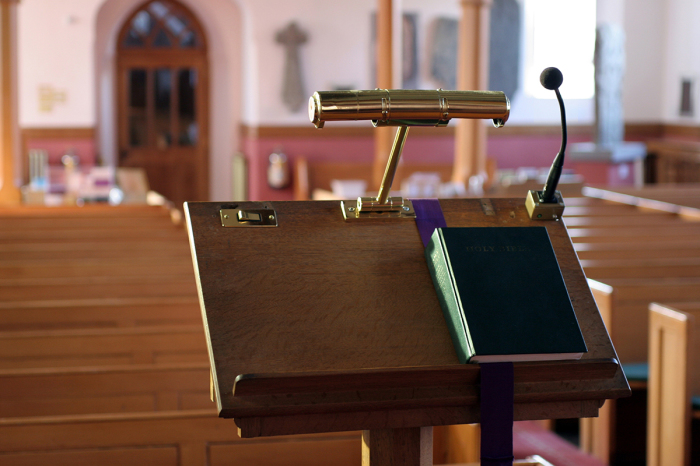
Despite faring worse than practicing Christians and U.S. adults in general in their relationships, physical, emotional and mental health, most pastors don’t get professional support.
A majority of them also appear to be unaware that these are the areas of their lives where they have the greatest need, according to a new Barna “State of the Church” report.
The report, released on Tuesday, was created in partnership with Gloo, a leading technology platform connecting the faith ecosystem. The study highlights the overall well-being of pastors and perceptions surrounding their role.
Over half (52%) of pastors don’t get any professional support through avenues such as mentors, advisors, coaches or counselors. And when they do seek help, they tend to do it on a more personal level, such as through a personal mentor (22%) or spiritual advisor (17%).
Twelve percent of pastors said they were seeing a therapist, 11% said they saw a professional mentor, and 3% said they saw a marriage counselor. Another 9% reported that they see a professional counselor.
In the study, researchers scored how pastors flourish on a scale of 0 to 100 in essential areas of life, including relationships, vocation, finances, health and faith.
“All things considered, today’s pastors are faring well. Based on Barna’s dimensions of flourishing, their combined flourishing score exceeds the U.S. adult population (76 vs. 71 when scored out of 100). This overall score, however, masks a more complex reality,” researchers wrote.
“Looking at specific categories, we see that pastors’ flourishing scores fluctuate, sometimes significantly higher — or lower — than the flourishing of the general population and the practicing Christians they shepherd.”
In the area of finances, for example, pastors recorded a flourishing score of 70% compared with 62% for all U.S. adults and 66% for practicing Christians.
Regarding relationships, however, pastors scored 67% compared to 79% for all U.S. adults and 85% for practicing Christians. Pastors also had a flourishing score of 69% for their well-being compared to 73% for all U.S. adults and 79% for practicing Christians.
“Perhaps most concerning is that pastors may be misidentifying their greatest needs. Despite scoring lowest in relationships (67) and well-being (69), pastors are most likely to say they need help with leadership development, spiritual growth, and finances — areas where they already demonstrate relative strength,” researchers noted.
“Our research also reveals important connections between support and flourishing. Pastors who receive more frequent spiritual support report higher vocational satisfaction. Conversely, pastors who struggle with work-life balance receive spiritual support less often,” they added. “These correlations highlight a concerning cycle for churches to note: Those who most need support may be least likely to access it, potentially due to time constraints, financial limitations or simply feeling too overwhelmed to seek help.”
Pastors were also found to be generally not content with their ability to retire, especially those under 40.
Researchers found that 64% of pastors today, with an average age of 52, have some confidence that they can retire when they want to. Only about 20% are “completely confident” they will be able to do this. About a third (36%) said they were “not confident” or “not sure” about when they would be able to retire.
“When we calculate how soon pastors hope to retire, we find that 15% are looking to step back within 5 years, and 27% within the next decade. With more than a quarter of current pastors potentially retiring in the next 10 years, church succession planning takes on new urgency,” the report stated.
“Younger pastors also express considerably less confidence in their ability to retire when they want compared to older pastors. Over half of pastors under 40 are either unsure or not confident about their retirement timing. This generational gap may reflect broader economic trends. It could also indicate that younger pastors have a more realistic view of what financial preparation is necessary for retirement.”
Contact: leonardo.blair@christianpost.com Follow Leonardo Blair on Twitter: @leoblair Follow Leonardo Blair on Facebook: LeoBlairChristianPost


















